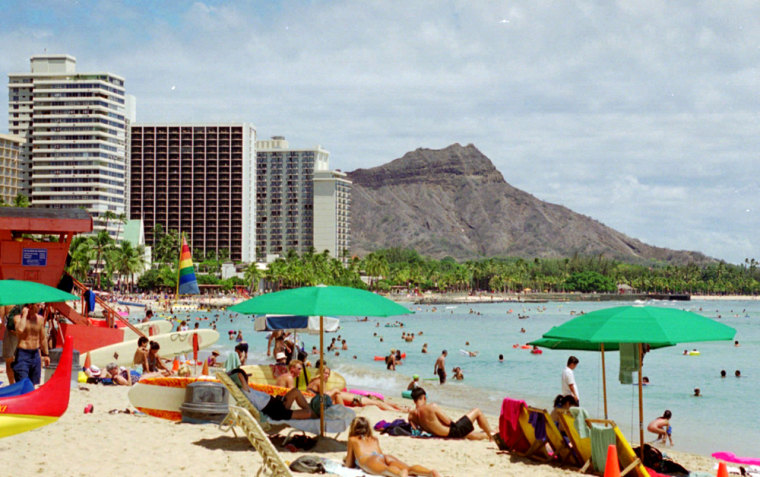Visitors flock to Hawaii’s shores to snorkel, surf and sink their feet into the unblemished white sands of the state’s beaches. But camouflaged among the coast’s glassy granules lies a hidden peril — seemingly indestructible cigarette butts cast away by smokers.
In a state where every beach is public, it is possible to light up in the sand outside the toniest oceanfront homes.
State lawmakers want that to stop. Under a bill before the Legislature, smoking would be banned on public beaches and parks, and cigarette butts would have to be tossed only into designated trash bins. Violators could be fined $250.
Several municipalities, including San Francisco and Honolulu, already have some sort of ban.
But Hawaii would be the first state to have such a law on its books. Other states, including Delaware and California, recently failed to pass similar legislation.
Democratic Rep. Kirk Caldwell, author and co-sponsor of the bill, said smoking goes against his idea of basking in the great outdoors.
“When you go to the beach, don’t you think of being in the sun, feeling the wind, feeling the sun on your skin, being in the water? And then there’s someone sitting next to you smoking ... smoke’s drifting down into your face,” he said.
Lawmakers might expect an outcry from those who deal in tourism from countries where cigarette smoking is more socially acceptable than in the United States, he said.
However, he said that when Hawaii counties banned smoking in restaurants a few years ago, tourists didn’t flee as opponents had warned. Reports from the National Restaurant Association showed a 3 percent increase in restaurant revenues in 2003, after bans on Oahu, Maui and Kauai took effect.
And discovering a cigarette butt while digging through the sand could turn off tourists, many of whom come to Hawaii for its pristine, natural beauty, Caldwell said.
Yujiro Kuwabara of the Japan Travel Bureau said the bill is unlikely to be met with much opposition or even surprise from foreign tourists. Even in notoriously cigarette-friendly Japan, smoke-free pedestrian areas have been set up in the nation’s capital.
The only challenge would be to make sure tourists know that things have changed in Hawaii, Kuwabara said.
“As long as we explain the reason to the tourists, I think they will understand,” he said.
